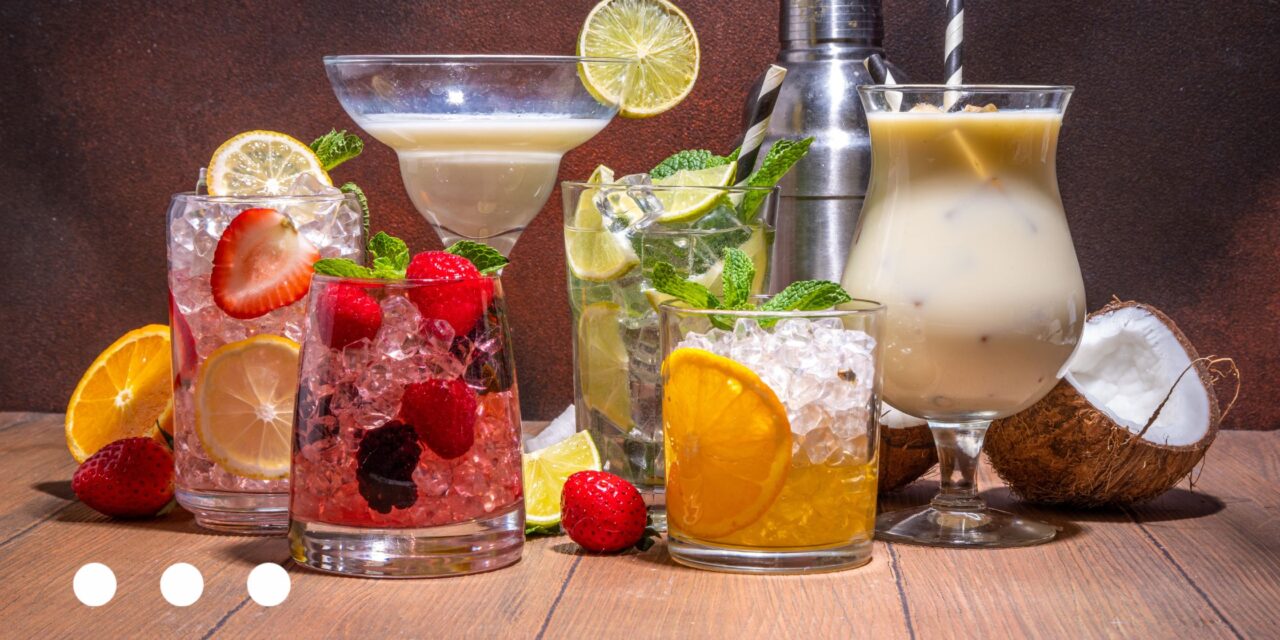Mocktails and non-alcoholic beverages are more popular than ever, gaining a massive following from health-conscious individuals, those exploring sobriety and the “sober curious” movement. With marketing that makes these drinks appear sophisticated, stylish and social-media friendly, it’s easy to see why mocktails are trending.
However, for individuals in recovery, the rise of mocktails may not be entirely positive. In fact, mocktail marketing poses unique challenges and potential risks for those striving to maintain a sober lifestyle.
What Are Mocktails and Why Are They Popular?
Mocktails, short for “mock cocktails,” are non-alcoholic beverages crafted to resemble traditional cocktails in flavor, appearance and even the experience they deliver.
Unlike soda or juice, mocktails are intentionally designed to mimic the complexity of cocktails. They use herbs, spices and botanicals to create a similar taste profile. Some common examples include virgin mojitos, non-alcoholic margaritas and alcohol-free gin and tonics.
Platforms like TikTok have seen hashtags like #mocktails reach over a billion views. Mocktails are often branded with terms like “crafted,” “artisanal,” and “luxurious,” creating a social media-friendly allure that appeals to wellness-minded and sober-curious consumers alike.
Mocktails have surged in popularity thanks to a few influential trends:
- Health and Wellness Focus: As people prioritize healthier lifestyles, they’re increasingly avoiding alcohol and opting for non-alcoholic options.
- The Sober-Curious Movement: This trend, which encourages people to explore life without alcohol, has led to more demand for sophisticated non-alcoholic options that feel adult and enjoyable.
- Social Acceptance: Non-alcoholic beverages allow individuals to participate in social drinking settings without the potential health and behavioral impacts of alcohol.
The Marketing Behind Mocktails: A Double-Edged Sword
Bars, restaurants and brands have enthusiastically embraced mocktails, investing heavily in marketing campaigns to make these non-alcoholic options feel as stylish and sophisticated as traditional cocktails.
While non-alcoholic beverages still represent a small slice of the overall alcohol market—making up less than 1% of total alcohol sales in the past year—this sector’s appeal is far from a fleeting trend. Industry experts project that the global market for non-alcoholic drinks will grow significantly, reaching an estimated $30 billion by 2025.
However, for those in recovery, drinking something that mirrors the cocktail experience can reignite memories and cravings associated with alcohol. The experience of holding a glass that looks just like a cocktail can make it harder to distinguish between past drinking behaviors and present choices, creating a slippery slope for people working to establish clear boundaries in their recovery journey.
Potential Dangers for People in Recovery
For those in the early stages of sobriety, this wave of marketing may be more than just harmless hype. The mocktail trend promotes beverages that look, taste and feel like alcoholic drinks, making them deeply enticing but also potentially triggering.
- Triggers and Cravings: One of the main concerns with mocktails in recovery is their similarity to alcoholic drinks, which can be highly triggering. People in recovery are often sensitive to familiar sights, smells and tastes associated with drinking. Mocktails that taste or look too similar to alcohol might reignite these cravings, potentially putting individuals at risk of relapse.
- Blurred Boundaries: Another issue is that mocktails can make it harder to establish boundaries with alcohol. For some, holding a mocktail in a cocktail glass may resemble their former drinking habits, making distinguishing between past and present behaviors harder. This blurring of boundaries can interfere with recovery goals, especially for those in the early stages who are still establishing a new, sober identity.
Tips for Navigating Mocktails Safely in Recovery
If you or a loved one is in recovery, it’s essential to approach mocktails with caution. Here are four practical tips for setting boundaries around mocktail consumption:
1. Set Personal Boundaries
Before deciding whether to have a mocktail, consider your personal recovery boundaries. Ask yourself how drinking a mocktail may affect your sobriety. Are you comfortable holding a drink that resembles alcohol? How does it make you feel? Being honest with yourself can help you determine if mocktails are a safe choice for you.
2. Communicate with Your Support System
Reach out to trusted friends, sponsors, or support groups about your concerns with mocktails. Their insights can provide clarity and help you stay accountable. They may also offer alternative perspectives that help you feel less isolated in social situations without relying on mocktails.
3. Opt for Alternatives
Plenty of refreshing, non-triggering alternatives are available for those who find mocktails too reminiscent of their drinking days. Consider drinks that don’t try to mimic cocktails, such as:
- Flavored sparkling water with a twist of citrus or berries.
- Herbal teas served cold with ice for a calming, refreshing option.
- Fresh fruit-infused water for a hydrating, natural flavor.
- Non-alcoholic beverages designed specifically for recovery settings.
4. Create New Social Rituals
Social drinking is as much about the socializing as it is about the drink itself. Emphasize other sober activities and gatherings, like engaging in conversations, savoring appetizers or focusing on the activity rather than the beverage. By redefining what makes a social occasion enjoyable, you can reinforce your commitment to recovery.
Taking Care of Your Recovery Journey
The rise of mocktails presents both an opportunity and a risk. For many, they offer an enjoyable, alcohol-free option in social settings. However, for individuals in recovery, the allure of mocktails can carry hidden dangers. The marketing behind these beverages, which emphasizes their similarity to alcoholic drinks, may trigger cravings and blur boundaries, potentially compromising sobriety.
If you’re navigating recovery, you must stay mindful of these risks and make informed choices about whether mocktails fit within your boundaries. You can enjoy social settings without compromising your hard-won progress by exploring non-triggering alternatives and setting clear boundaries.
Remember, recovery is a journey, and it’s always okay to prioritize what’s best for your well-being.

